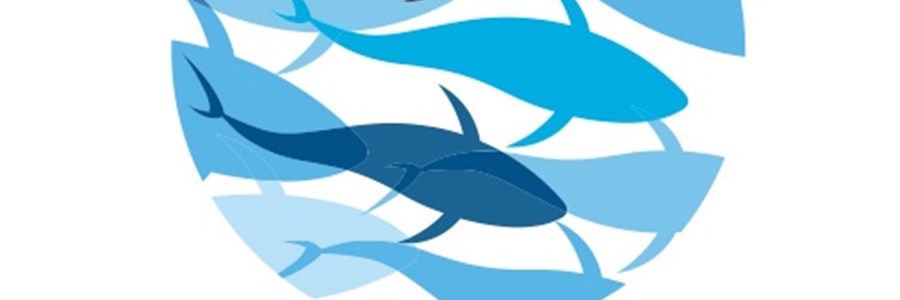Tuna purse seine fleets and associated developing economies swept up in geopolitical storm

Purse seine fishery’s existence in the Indian Ocean is at stake, after an inapplicable decision against drifting Fish Aggregating Devices (FADs) was imposed by vote in the IOTC. Coastal developing states’ economies are severely threatened
During the Special Session of the Indian Ocean Tuna Commission (IOTC) that took place in Kenya from February 3rd to 5th, eleven states (including recurrent objectors to important management and conservation measures such as Somalia, Pakistan, Indonesia, Madagascar, India, Iran and Australia) had a clear target: end FAD fisheries and expel Europeans from those waters. As part of the measures imposed by secret vote, the majority of members of the IOTC (not using FADs) agreed to rapidly phase out drifting FADs which will destroy the purse seine fleets and undermine the economies of the developing states that depend on it. For instance, Seychelles and Mauritius’ canneries might not survive this decision, which is binding, since their supply depend on the landings from these vessels. The eleven proponents were driven by Indonesia, which objected the yellowfin tuna management plan and has increased its catches by more than 250% since 2014.
FADs are floating objects that have been employed for hundreds of years in both commercial and recreational tuna fisheries. FADs typically consist of rafts with buoys attached for its location that could be drifting in the ocean or anchored at the sea floor to improve efficiency, reduce costs and emissions. The whole of the EU long distance tuna fleet extensively use this method.
The Mauritian delegate in the meeting explained: “Mauritius is not a big fishing nation yet. It is a processing nation. For that Mauritius needs raw material. The purse seine fishery contributes 20 000 jobs and guarantees the access to the EU market, which brings good opportunities to Mauritius, to enhance its economy.” The representative from Comoros was also opposing the Indonesian proposal, and claimed its preference for the European one, which was improving traceability, transparency and biodegradability while protecting local economies: “Comoros supports the EU proposal because it has an industry that must function. Small countries are also waiting for supplies brought by these large boats”.
According to Europêche Tuna Group, while other fishing fleets catch more than half of the total tuna catches in the IOTC area, the whole burden is placed on purse seiner fleets. This is, 46 vessels which employ hundreds of sailors, including from Africa and create employment in processing plants, shipyards and port facilities in the Indian Ocean. The delegate from Seychelles also strongly opposed this measure: “Having a moratorium on one particular gear, without any scientific advice, is unfair and discriminatory”.
Europêche Tuna group stresses that the EU, Seychelles, Mauritius, Comoros and other contracting parties were not opposing the introduction of further FAD measures. These countries were only requesting specific scientific advice, to be delivered in the next scientific committee in December 2023, for the IOTC to take a science-based decision in 2024. No more, no less.
Anne-France Mattlet, Director of the Europêche Tuna Group, regretted this decision: “No science to base the decision on, no consideration for local economies, and above all, no possibility given to the EU and other opposed developing countries to discuss and find a compromise. The proponents only agreed to meet once for less than two hours in three days. Just a vote that imposed measures that will threaten the whole EU long-distance tuna fleet and the purse-seine dependent economies of the region. Can it be something else than a geopolitical issue? We are strongly asking the EU to challenge this decision, in line with the affected developing countries, to save the purse seine fleet and support its developing partner states. The contrary will hand over our tuna supply to non-EU fleets and foreign interests”.
Europêche Tuna Group is concerned about the influence exerted by the International Pole and Line Foundation, a UK-based charity that represents tuna fisheries and supply-chain, in this decision. The companies represented by this organization are close to acquire a monopoly on certified (MSC) tuna in the UK market. An attractive market for the EU purse seine fleet which is also certified. Its representative, John Burton, has recently be the object of a very accusative declaration from Parties to the Nauru Agreement (PNA) Tuna[1], an agreement of little Pacific Islands which controls most of the Western and Central Pacific tuna supply. UK, which is a contracting party to IOTC through the Chagos Islands, strongly expressed its support to the proposal from Indonesia during the meeting and asked for the strongest package possible, which goes against the interests of the EU fleet.
Press contacts:
Daniel Voces, Managing Director of Europêche: +32 2 230 48 48 daniel.voces@europeche.org
Anne-France Mattlet, Europêche Tuna Group Director: anne-france.mattlet@europeche.org
[1] https://www.pnatuna.com/content/actions-desperate-man-attack-pacific-island-nations
Sources: Europeche
Attachments:
Tags: IOTC, fads, yellowfin tuna